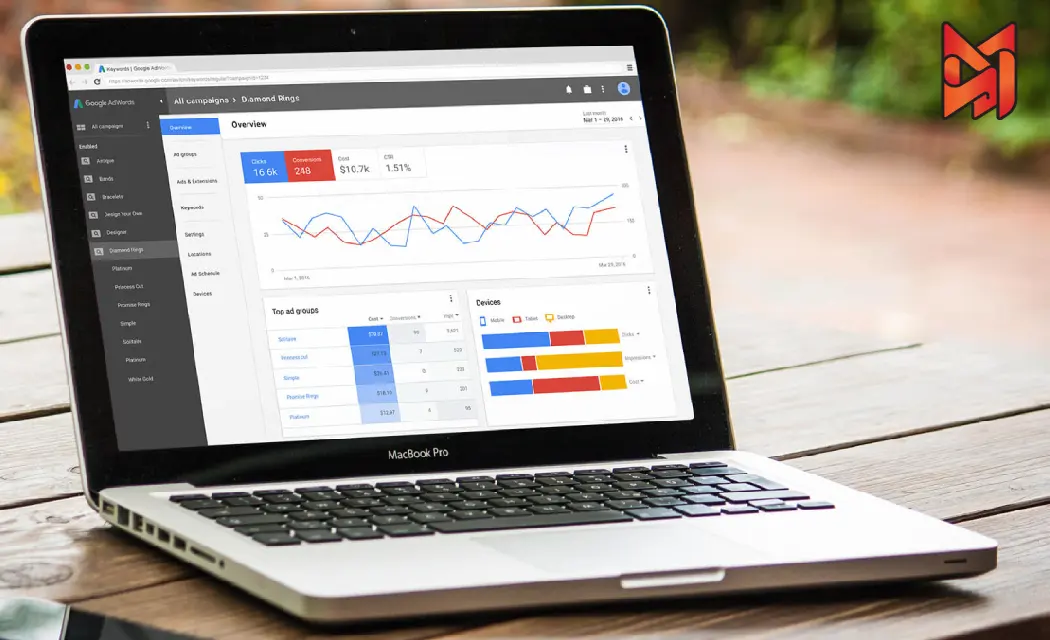In today’s world, staying ahead means understanding what your competitors are doing, especially regarding the keywords they are bidding on. If you’ve ever wondered how businesses secure top positions in Google search results or whether it’s acceptable to target a competitor’s keywords, you’re in the right place.
This article discusses competitor keyword bidding and answers key questions like: What does bidding on keywords mean? Is it illegal to bid on competitor keywords? How does Google AdWords handle bidding on competitor brand names? How can you effectively target competitors through Google Ads? Get ready for an SEO-optimized, engaging, and highly informative guide that will enable you to navigate this strategy like a pro.
What Does Bidding on Keywords Mean?
Bidding on keywords is the process of placing financial bets on specific search terms in platforms like Google Ads to ensure your ads are displayed when people search for those terms.
Consider it similar to an auction: you determine your maximum cost per click (CPC) for a keyword, and Google utilizes that bid, along with your ad’s quality score (which includes relevance, landing page experience, and click-through rate), to decide if and where your ad appears.
For example, if you run a coffee shop in Dubai, you might bid on keywords like “best coffee Dubai” to attract local caffeine lovers. But you could also bid on a competitor’s name, like “Starbucks Dubai,” to capture people searching for them. This is where the concept of keywords that competitors are bidding on comes into play. It’s about understanding which terms your competitors are targeting to capture their audience’s attention.
If you want to know what is google ads and why is essential for businesses, read our article on this topic.
Why does this matter? Understanding which keywords competitors are bidding on allows you to identify gaps in your strategy, discover new opportunities, and even capture a portion of their traffic. It’s not about imitating them blindly but about outsmarting them with superior ads and offers.

Is It Illegal Bidding on Competitor Keywords?
One of the biggest questions swirling around keywords competitors are bidding on is whether it’s legal to target a competitor’s keywords. The short answer? It’s perfectly legal—with some caveats. So, please read this article carefully.
Google Ads allows advertisers to bid on any keyword, including competitor brand names, as long as they follow specific rules. The key is avoiding trademark infringement. You can bid on a competitor’s brand name (for example, “Nike shoes”). Still, you can’t use their trademarked name in your ad text unless you’re an authorized reseller or providing informational content. For example, an advertisement claiming “Better than Nike!” could get you into trouble if Nike’s trademark is registered with Google.
The legality depends on avoiding confusion for customers. Your advertisement must clearly indicate that you are a different brand offering an alternative product or service. Offering an alternative product or service, courts have generally upheld this practice as long as the ads don’t mislead users into thinking you’re the competitor. So, while bidding on keywords, competitors’ bids are fair game; always play clean by focusing on your unique value and avoiding trademarked terms in your ad copy.
Google AdWords Bidding on Competitor Brand Names
Now, let’s focus on Google AdWords bidding on competitor brand names, a tactic that can feel like entering a digital Wild West. When you bid on a competitor’s brand name, you aim to show your ad to individuals searching for it—those who are likely ready to purchase. It’s a bold move, but it can pay off if executed properly.
Why Bid on Competitor Brand Names?
- High-Quality Traffic: People searching for a brand are often at the decision-making stage, making them prime targets for your alternative offer.
- Cheaper Clicks: Brand keywords tend to have lower competition than generic terms like “running shoes,” so clicks can cost less.
- Brand Awareness: Even if users don’t click, they see your name, planting a seed for future searches.
Bidding on competitor brands isn’t a magic bullet. Your ad’s quality score will likely be lower because your website isn’t as relevant to the competitor’s brand as theirs is. This means you may need to place a higher bid to remain competitive. Moreover, conversion rates may be lower, as users searching for “Adidas” are likely looking for Adidas specifically, not your brand—unless your offer is compelling (consider discounts or unique features).
To make this work, create ads that highlight why you’re superior. For instance, if you’re a sneaker brand bidding on “Adidas Dubai,” your ad could state, “Shop Premium Sneakers with Free Delivery in Dubai!” It’s subtle, legal, and positions you as a credible alternative without mentioning the competitor.
Dimarketo provides Google Ads services in Dubai, helping businesses maximize their online visibility and drive targeted traffic with precision. Creating effective Google Ads campaigns requires strategic expertise, and our team excels at developing customized strategies that deliver measurable results.
While establishing a strong brand presence is essential, relying on our experts to manage your Google Ads guarantees optimized performance, saving you time and enhancing ROI. Allow us to manage the complexities of campaign setup, keyword targeting, and ad optimization while you concentrate on improving your brand identity.
Beyond Google Ads, Dimarketo also provides comprehensive digital marketing services in Dubai, such as SEO and content marketing, to enhance your digital success across all channels.

How to Target Competitors on Google Ads?
Targeting competitors on Google Ads is an art form that combines strategy, research, and creativity. If you want to master the keywords competitors are bidding on, here’s a step-by-step guide to doing it effectively and ethically:
Research Competitor Keywords
Begin by identifying the keywords your competitors are bidding on. Tools like SEMrush or Ahrefs can disclose their paid keywords, ad copy, and landing pages. You can also utilize Google’s Auction Insights report in Google Ads to find out who’s bidding on similar terms. Look for:
- Branded keywords (e.g., their company name)
- High-intent keywords (e.g., “buy [product] Dubai”)
- Long-tail keywords (e.g., “affordable CRM software alternative”)
Choose Strategic Keywords
Don’t bid on every competitor’s name; focus on those with overlapping products or services. For example, if you sell eco-friendly yoga mats, bidding on “Lululemon yoga mat” makes sense, but “Lululemon leggings” might not. Additionally, focus on terms such as “alternative to [competitor]” or “[competitor] reviews” to attract users considering their options.
Create Compelling Ads
Your ad needs to stand out without breaking Google’s rules. Avoid mentioning the competitor’s name in your ad text. Instead, emphasize your unique selling points:
- “Eco-Friendly Yoga Mats with Lifetime Warranty!”
- “Save 20% on Premium CRM Software Today!”
Use ad extensions like sitelinks or callouts to highlight deals, free shipping, or customer reviews, making your ad more clickable.
Optimize Landing Pages
Google ads optimization is essential, and landing pages are so important. Direct users to a landing page customized for the keyword. If you’re bidding on “HubSpot alternative,” develop a page that compares your CRM to theirs (without illegally using their trademark). Emphasize benefits such as reduced prices or enhanced features. A pertinent landing page improves your quality score, thereby reducing your costs.
Add Negative Keywords
Prevent wasted spending by adding negative keywords such as “login,” “customer service,” or “phone number.” These terms attract existing customers who are unlikely to switch, preserving your budget for high-intent users.
Monitor and Adjust
Competitor bidding can be expensive, so monitor your campaigns closely. Utilize Google Ads’ conversion tracking to identify which keywords generate sales or leads. If a keyword’s cost-per-acquisition (CPA) is too high, pause it and shift the budget to better performers. Regularly check competitor strategies—they might start bidding on your brand in response!
Protect Your Brand
While targeting competitors, don’t forget to bid on your brand keywords. This guarantees you outperform searches for your name and positions competitors’ ads lower. It’s a protective strategy that safeguards your traffic.

Why Does Knowing Keywords That Competitors Bid Matter?
Understanding which keywords competitors are bidding on isn’t just about playing offense—it’s about staying informed and agile in a crowded market. Here’s why it’s a game-changer:
- Finding Opportunities: Identify keywords that your competitors excel in, but you may have missed, such as high-intent niche terms.
- Stay Competitive: If competitors are bidding on your brand, you should be aware so you can respond with more compelling ads or improved offers.
- Maximize Your Budget: Concentrating on high-value competitor keywords can help you avoid wasting money on irrelevant terms.
- Boost ROI: By targeting the right audience with the right message, you can increase conversions and make every dirham count.
Practical Tips to Stay Ahead
Here are some valuable insights to enhance your competitor keyword strategy:
- Use Long-Tail Keywords: Terms like “best alternative to [competitor]” attract users actively comparing options.
- Test Ad Copy: Try different headlines and offers to see what resonates. A/B testing is your friend!
- Utilize Analytics: Tools such as Google Analytics can demonstrate how competitor keyword traffic operates on your site, assisting you in refining your funnel.
- Stay Ethical: Always prioritize user experience over deceptive tactics. Misleading advertisements damage your brand in the long run.
- Budget Wisely: Begin with a modest test budget for competitor keywords and increase it only if you observe positive results.
Final Thoughts
Navigating the keywords that competitors are bidding on is like a chess match—strategic, bold, and rewarding when executed properly. By understanding the meaning of bidding on keywords, recognizing its legality (within certain limits), mastering Google AdWords for competitor brand names, and strategically targeting competitors, you can convert competitor traffic into your opportunity. Whether you’re a small business or a global brand, this approach equalizes opportunities, enabling you to attract attention and conversions from the right audience.





